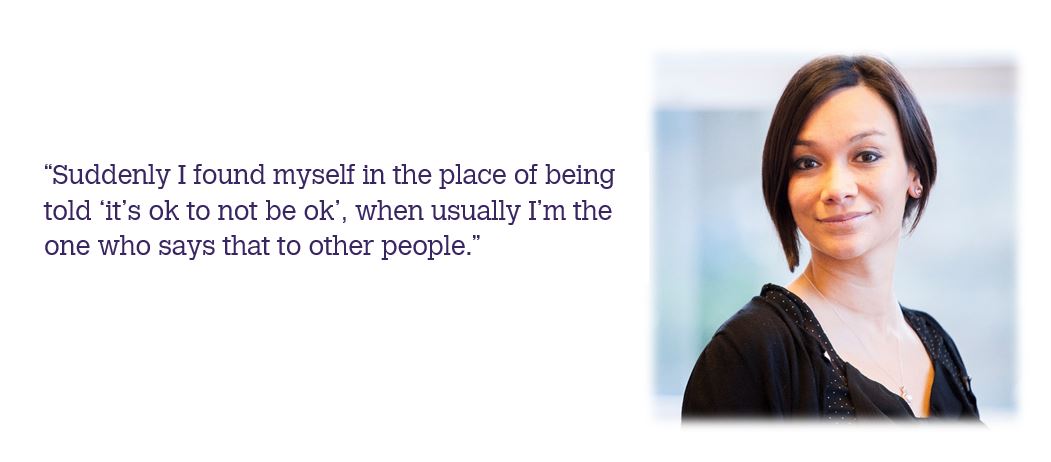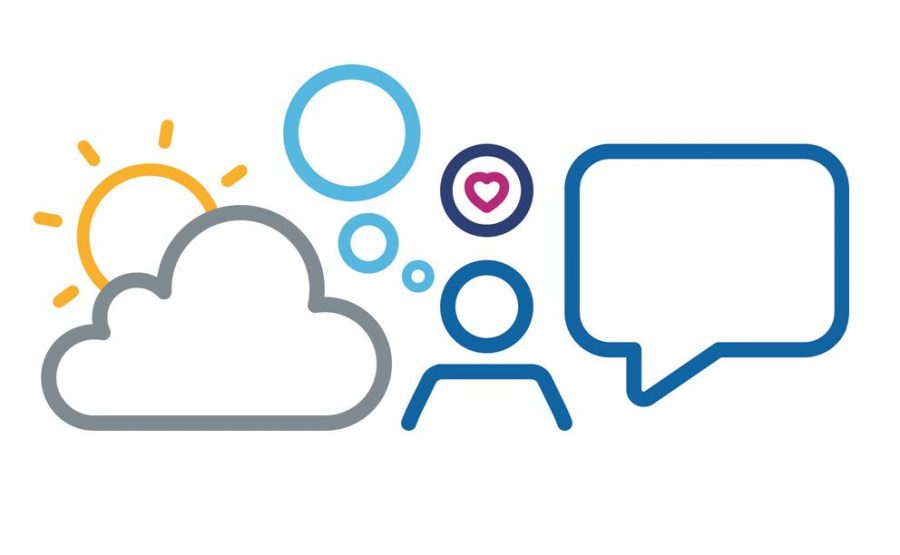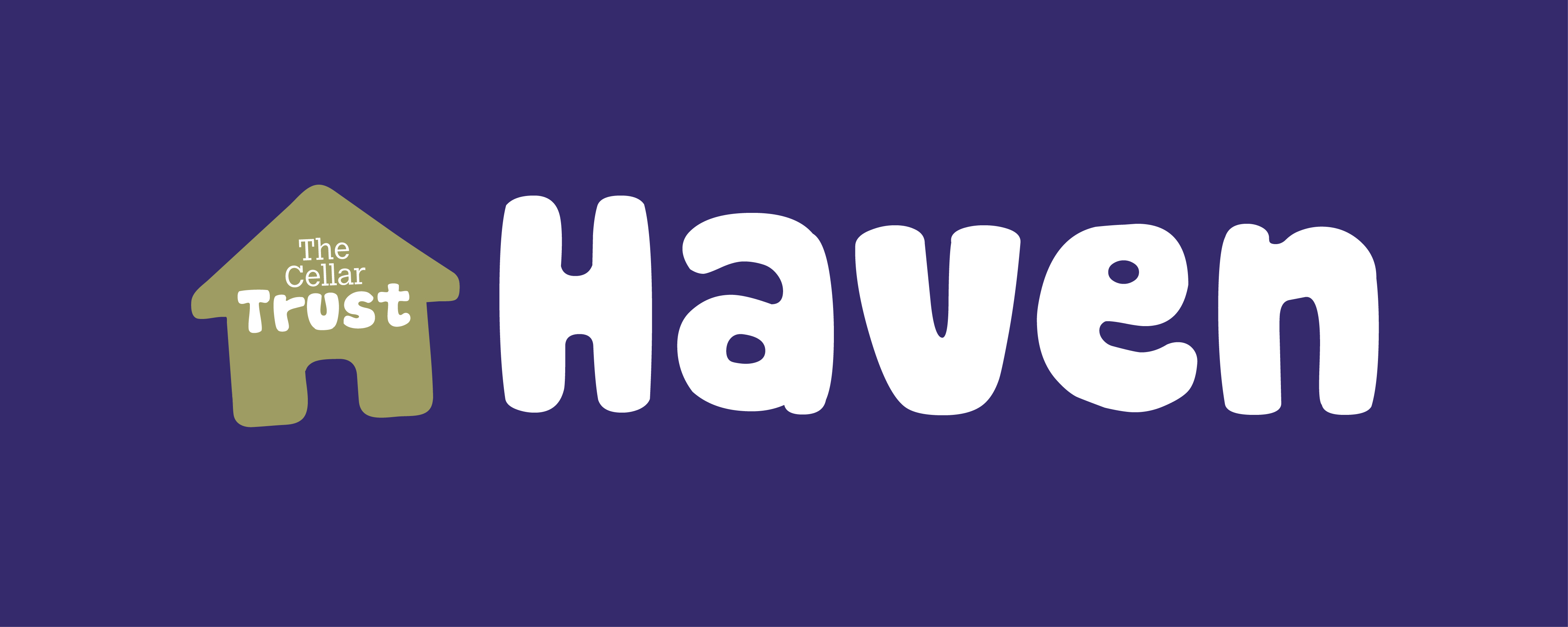Last week, as part of Time to Talk 2019, I tweeted about a few things that help me with my mental wellbeing, which got me thinking. I have huge respect for those in senior positions (actually in any position) who bite the bullet and talk about their mental health, so thought it was time I do the same.
I quote a colleague Nick Smith (from Missing Peace) a lot: ‘1 in 1 of us struggle with our mental health at some point.’ I’m not talking here about mental illness here. I’m talking about the fact that, like with our physical health, mental health and our sense of wellbeing, is on a spectrum, and in everyone’s lives adverse events can affect this, and these events can hit us all at once and that can knock us for 6.
At The Cellar Trust, where I am privileged to work, we run a crisis service called Haven (www.thecellartrust.org/haven). When we set that service up 2 1/2 years ago we thought the people who would come would be those a long term mental illness. Actually, it’s consistently the case that 1/2 the people do not have a diagnosable long-term condition or need secondary mental health care. They are people who have experienced a serious or multiple serious adverse life events, and something has just tipped them over the edge, they can no longer cope, and don’t know where to turn.
Last year bowled me over with a bit too much on the old ‘adverse events front’ and despite being a pretty resilient sort, my mental wellbeing was not tip-top. Suddenly I found myself in the place of being told ‘it’s ok to not be ok’, when usually I’m the one who says that to other people.
I thought I would share the things that have helped me during this time. I’m not writing this to say that these things work for everyone but they have been a winner for me and maybe others can take a little snippet from what I have learnt along the way:
1. At The Cellar Trust we pride ourselves on having a culture where we can talk about our mental health. That did not mean it was easy for me to do it as ‘the boss’. I needed their patience and they were amazing. Bless them, some shed a little tear for me and gave me a big hug, others followed up with a little email offering support. Lots of my colleagues, and indeed my Board, have had my back. Knowing that they do makes the world of difference. Being prepared to be a leader and show a bit of vulnerability gives others the permission to do it too.
2. Not one limited to tricky times but that helps me to stay well is Action Learning, mentoring and peer support from fellow VCS CEOs and other brilliant people who work outside my organisation. When you are already feeling swamped with work, taking time out for these things can seem like a luxury but they are worth their weight in gold. Without doubt I return from these things with increased clarity of thought and plans for clear actions, which in turn, makes me feel lighter and more productive. In the past couple of months, these people have taken me for a walk round the block so I could stop crying before I was about to chair a committee, taken me out for dinner (tasty food always helps), helped me get perspective and generally been good eggs. I am cheesy about it but being part of a wider team is one of my favourite things about my job.
3. I am a massive advocate of therapy and am firmly in the camp that we could all benefit from it (or at least coaching) and I encourage colleagues and friends to take it up regularly. I trained to be a coach a few years ago and it was one of the best things I have ever done but apart from coaching, I have never personally engaged in therapy. But this time I thought I had better – metaphorically – put my money where my mouth is. So I now have a fabulous therapist through our Employee Assistance Programme at work.
4. I have never been an exercise fan. I used to get out of PE at all costs and I can barely run up the stairs. But I bloomin’ love dancing and Zumba makes me smile, so I have pulled my finger out and got involved. And now (begrudgingly) I am actually enjoying a bit of exercise. I have also managed to sign myself up for a giant abseil down a waterfall in Wales later this year thanks to my new mate and colleague Zoe Duffy (from Formations Care) – who is raising funds for us. It is ridiculous and hilarious. Anyone fancy joining us on our little adventure – give me a shout – it is going to be amazing. #feelthefearanddoitanyway
5. The last one is a random list:
- Talk to your friends, family or colleagues you trust
- Be patient with yourself (this is a tricky one for me)
- Listen to podcasts that give you perspective (I am a big fan of Fearne Cotton Happy Place which is all about mental wellbeing)
- Have a kitchen disco, play music and sing loudly in the car (a good 80s classic sorts me right out)
- Have long baths (my sister bought me one of these – it is a total game changer)
- Avoid the temptation to go into hibernation (however great the urge might be) and plan lovely stuff and adventures with people who ground you and lift you at the same time
- Write a gratitude list on a regular basis (it is proven to build resilience!)
- Find little things that make you smile (I like wearing jazzy clothes for work, having an excessively glittery note pad, writing in purple, and surrounding my desk with motivational quotes and photos of people I love)
Next on my list is meditation. I am reassured by many people who I have big respect for that it is wonderful thing. So the Calm app is downloaded and the challenge is on… wish me luck!




